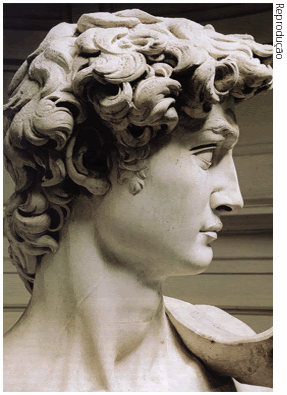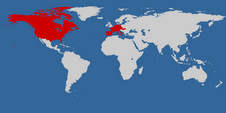Christoph Willibald (von) Gluck (July 2.nd 1714 - November 15.th 1787) was a German composer, one of the most important opera composers of the Classical music era, particularly remembered for "Orfeo ed Euridice".
He is also remembered as the music teacher of Marie-Antoinette, who as Queen of France promoted Gluck and was his patron.
Some regard him as the father of the Rococo and Classical age of music – at least in Opera.
Gluck's reforms, eliminating all that was undramatic, were a turning point in the history of Opera.
Kunsthistorisches Museum, Vienna.
Deutsche Fassung:
ORPHEUS
Ach, ich habe sie verloren,
all mein Glück ist nun dahin!
Wär, o wär ich nie geboren,
weh, dass ich auf Erden bin!
Eurydike, gib Antwort,
o vernimm mich!
O höre meine Stimme,
die dich ruft zurück!
Ach, vergebens!
Ruh und Hoffnung,
Trost des Lebens
ist nun nirgends
mehr für mich!
Versione italiana:
ORFEO
Che farò senza Euridice?
Dove andrò senza il mio ben?
Euridice!... Oh Dio! Rispondi!
lo son pure il tuo fedel!
Euridice... Ah! non m'avanza
Più soccorso, più speranza,
Ne dal mondo, ne dal ciel!
Che farò senza Euridice?
Dove andrò senza il mio ben?
Version française:
ORPHÉE
J'ai perdu mon Eurydice,
Rien n'égale mon malheur;
Sort cruel! Quelle rigueur!
Rien n'égale mon malheur!
Je succombe à ma douleur!
Eurydice… Eurydice…
Réponds, quel supplice!
Réponds-moi!
C'est ton époux fidèle!
Entends ma voix qui t'appelle.
Eurydice, Eurydice!
Mortel silence! Vaine espérance!
Quelle souffrance!
Quel tourment déchire mon cœur!
English version:
ORPHEUS
I have lost my Eurydice,
Nothing can equal my sorrow;
Brutal fate! What cruelty!
Nothing can equal my sorrow!
I succumb to my pain!
Eurydice, Eurydice,
Answer, what torture!
Answer me!
It is your faithful husband;
Listen to my voice calling you.
Eurydice, Eurydice!
Mortal silence! Vain hope!
What suffering!
What torment tears my heart!
«On their way out of Hades, Eurydice is delighted to be returning to earth, but Orpheus, remembering the condition related by "Amore", lets go of her hand and refuses to look at her. She reproaches him, but he must suffer in silence. Eurydice takes this to be a sign that he no longer loves her, and refuses to continue, concluding that death would be preferable. Unable to take any more, Orpheus turns and looks at Euridice; again, she dies.
He sings of his grief in the famous aria "I have lost my Eurydice"…»
RIC




















2 comentários:
Those old paintings are pretty cool. I hear that you have lots of them in Europe.
I hope you are having a great week over there in Portugal.
Kev in NZ
Hello dear Kevin! That's exactly why you should try to go to both London and Paris! You'll find lots of such paintings in both cities' museums...
Thank you so very much! I'm trying to have a great week!
Hugs!
:-)
Enviar um comentário